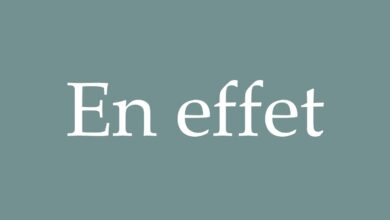Exploring the Multifaceted World of Les Plus: A Comprehensive Guide

Introduction
The phrase “les plus” in French translates to “the most” in English. It is used to indicate superlative forms and is essential for expressing comparisons, emphasizing qualities, and discussing extremes. This comprehensive guide will delve into various aspects of “les plus,” including its grammatical usage, cultural significance, and practical applications, helping you master its use in French.
Grammatical Usage of “Les Plus”
“Les plus” is primarily used in French to form superlative adjectives and adverbs. It combines with adjectives or adverbs to indicate the highest degree of a quality. For example, “les plus beaux” (the most beautiful) or “les plus vite” (the fastest). Understanding its grammatical usage is crucial for constructing accurate and expressive sentences in French.
Common Phrases with “Les Plus”
There are numerous common phrases in French that incorporate “les plus.” These phrases are frequently used in everyday conversation and writing. Examples include “les plus grands succès” (the greatest successes) and “les plus belles villes” (the most beautiful cities). Familiarizing yourself with these common phrases can improve your conversational skills and comprehension.
Cultural Significance of “Les Plus”
The phrase “les plus” holds cultural significance in French, often appearing in literature, music, and popular expressions. It is used to emphasize excellence, beauty, and other superlative qualities in various contexts. Understanding its cultural context can provide deeper insights into French society and communication.
Variations and Synonyms of “Les Plus”
While “les plus” is a common phrase, there are variations and synonyms that can be used in different contexts. For instance, “le plus” (the most) for singular nouns, and “le meilleur” (the best) for indicating the highest quality. This section will discuss these variations and when to use them for more nuanced expression.
Practical Tips for Using “Les Plus”
Mastering the use of “les plus” involves practice and awareness of its various applications. This section will provide practical tips for incorporating “les plus” into your spoken and written French. Tips include paying attention to noun genders, practicing with common phrases, and listening to native speakers for natural usage.
Mistakes to Avoid with “Les Plus”
Even advanced learners can make mistakes with “les plus.” Common errors include incorrect agreement with nouns, overuse, and misplacement within a sentence. Understanding these common mistakes and how to avoid them can help you use “les plus” more accurately and confidently. This section will highlight typical errors and provide corrective tips.
Exercises for Practicing “Les Plus”
To solidify your understanding and usage of “les plus,” engaging in practice exercises is beneficial. This section will offer various exercises, such as sentence completion, translation, and conversation prompts, designed to reinforce your skills. Regular practice with these exercises can help you become more fluent and comfortable with “les plus.”
The Role of “Les Plus” in Advanced French
As you progress in your French language learning, the role of “les plus” becomes even more significant. It appears frequently in advanced texts, academic writing, and sophisticated conversations. This section will explore the importance of mastering “les plus” for advanced proficiency and how it enhances your overall language skills.
Resources for Learning More about “Les Plus”
There are numerous resources available for learners seeking to improve their understanding and use of “les plus.” These include online courses, grammar guides, language apps, and native French content. This section will provide recommendations for resources that can aid in your learning journey, offering diverse tools to enhance your proficiency.
Conclusion:
The phrase “les plus” is a fundamental component of the French language, essential for constructing meaningful and expressive sentences. By understanding its grammatical usage, common phrases, cultural significance, and practical applications, learners can greatly enhance their French language skills. Embracing the versatility of “les plus” opens up new avenues for communication and comprehension in French.
FAQs
- What does “les plus” mean in English? “Les plus” translates to “the most” in English and is used to form superlative adjectives and adverbs.
- Can “les plus” be used with any adjective or adverb? Yes, “les plus” can be used with any adjective or adverb to indicate the highest degree of a quality, such as “les plus beaux” (the most beautiful) or “les plus vite” (the fastest).
- Are there synonyms for “les plus”? Yes, synonyms and variations include “le plus” (the most) for singular nouns and “le meilleur” (the best) for indicating the highest quality.
- What are common mistakes to avoid with “les plus”? Common mistakes include incorrect agreement with nouns, overuse, and misplacement within a sentence. Awareness and practice can help avoid these errors.
- How can I practice using “les plus”? Practicing with exercises such as sentence completion, translation, and conversation prompts can help solidify your understanding and usage of “les plus.”




